The dangers of altitude sickness and how to avoid it
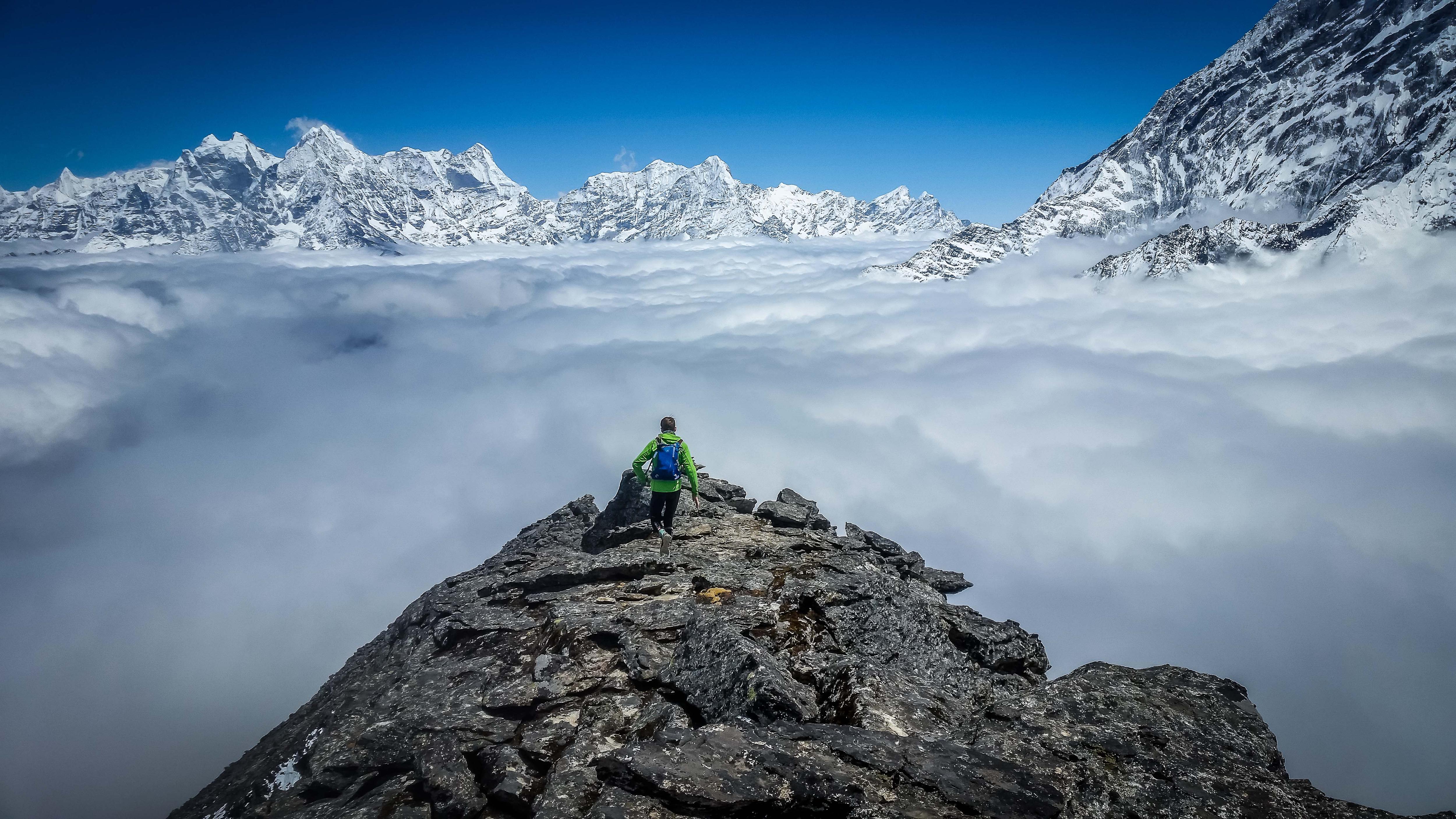
Nepalese doctors warn travellers against the dangers of altitude sickness.
For many adventurers, the attraction to breathtaking views on top of towering mountains is irresistible, but doctors are urging climbers to be aware of the dangers associated with altitude.
In the high reaches of the world where oxygen is scarce, the body struggles to adapt if more accustomed to living closer to sea level.
This can lead to life-threatening conditions such as high-altitude pulmonary edema (HAPE) or high-altitude cerebral edema (HACE).
The lesser-known condition high-altitude de-acclimatisation syndrome (HADAS) is also becoming more prevalent.
Those who have acclimatised to high altitudes become susceptible to these dangers, as they can lose their ability to adapt to more oxygen-dense, lower altitudes.
This can impact communities like Nepalese and other Asian hill tribes.
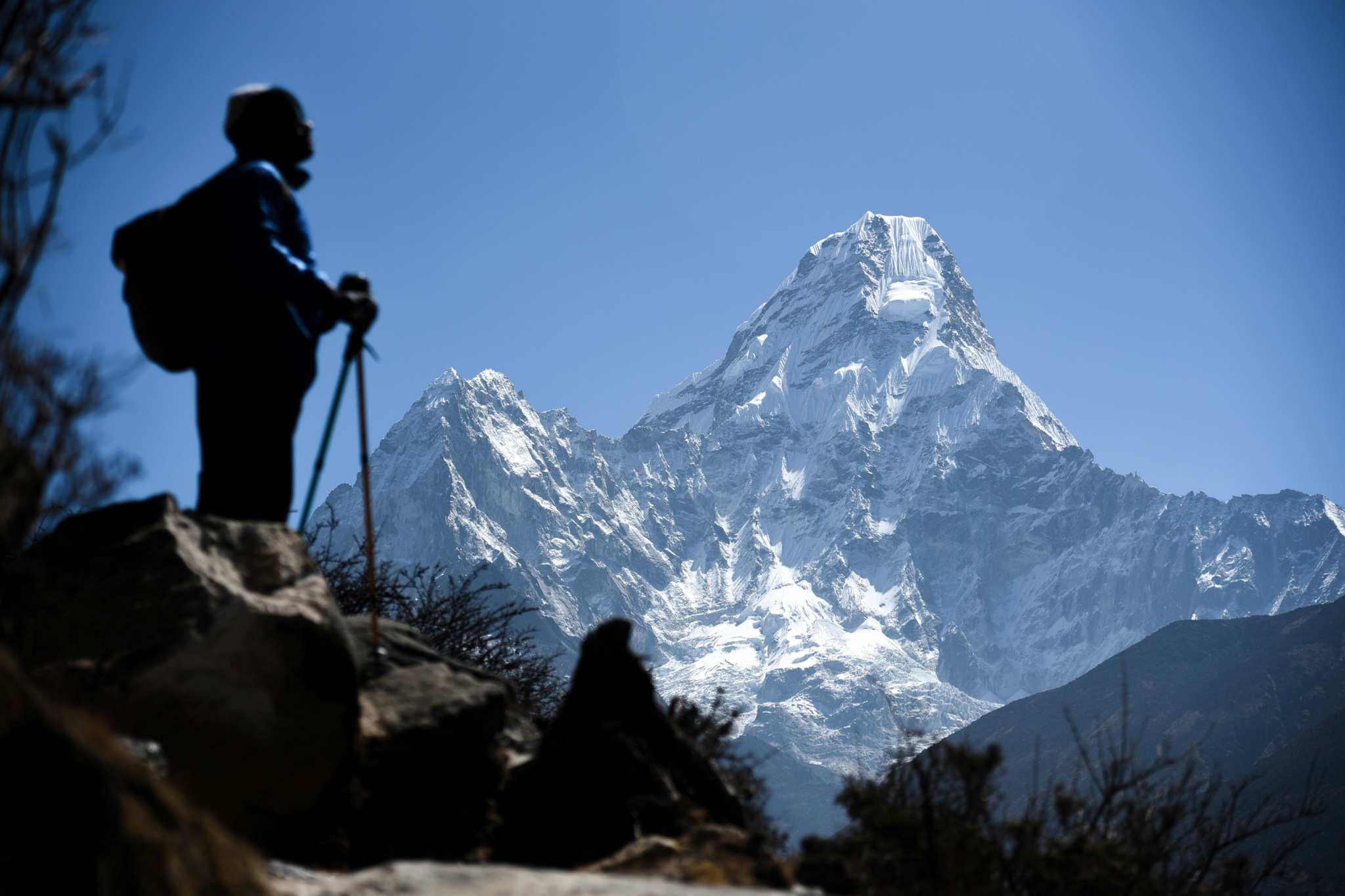
The Himalaya region is a popular travel destination for hikers and adventure lovers.
What is altitude sickness?
Altitude sickness, or acute mountain sickness (AMS), is not uncommon among trekkers, climbers and even tourists visiting high-altitude regions like the Himalayas.
Shankar Pokharel is a Nepalese doctor at a tourist hospital in Pokhara, near the Annapurna Base Camp, a popular hiking destination known as the more doable trek in the Himalaya region.
With the new Nepalese hiking season in full swing, he recommends travellers to come prepared.
Last year, Annapurna Conservation Area reported 21 deaths from high-altitude sickness. Six were Nepalese.
Meanwhile, on Mount Everest, 12 climbers died and five are missing, feared dead.
Dr Pokharel said about 85 per cent of the people who came through the hospital were treated for altitude sickness.

Shankar Pokharel is a Nepalese doctor at a tourist hospital in Pokhara.
"Fitness levels alone won't protect you, even healthy individuals can develop altitude sickness if they ascend too quickly," he said.
"Learning to recognise the early symptoms of altitude sickness, like severe headache, dizziness, and nausea, is vital to prevent serious complications."
Those who come from sea level and climb rapidly are most likely to develop altitude sickness-related complications, including HAPE and HACE.
"HAPE affects the lungs due to fluid accumulation … people feel like they're suffocating," Dr Pokharel said.
Meanwhile, HACE causes an accumulation of fluid in the brain.
Both conditions can be fatal if left untreated.
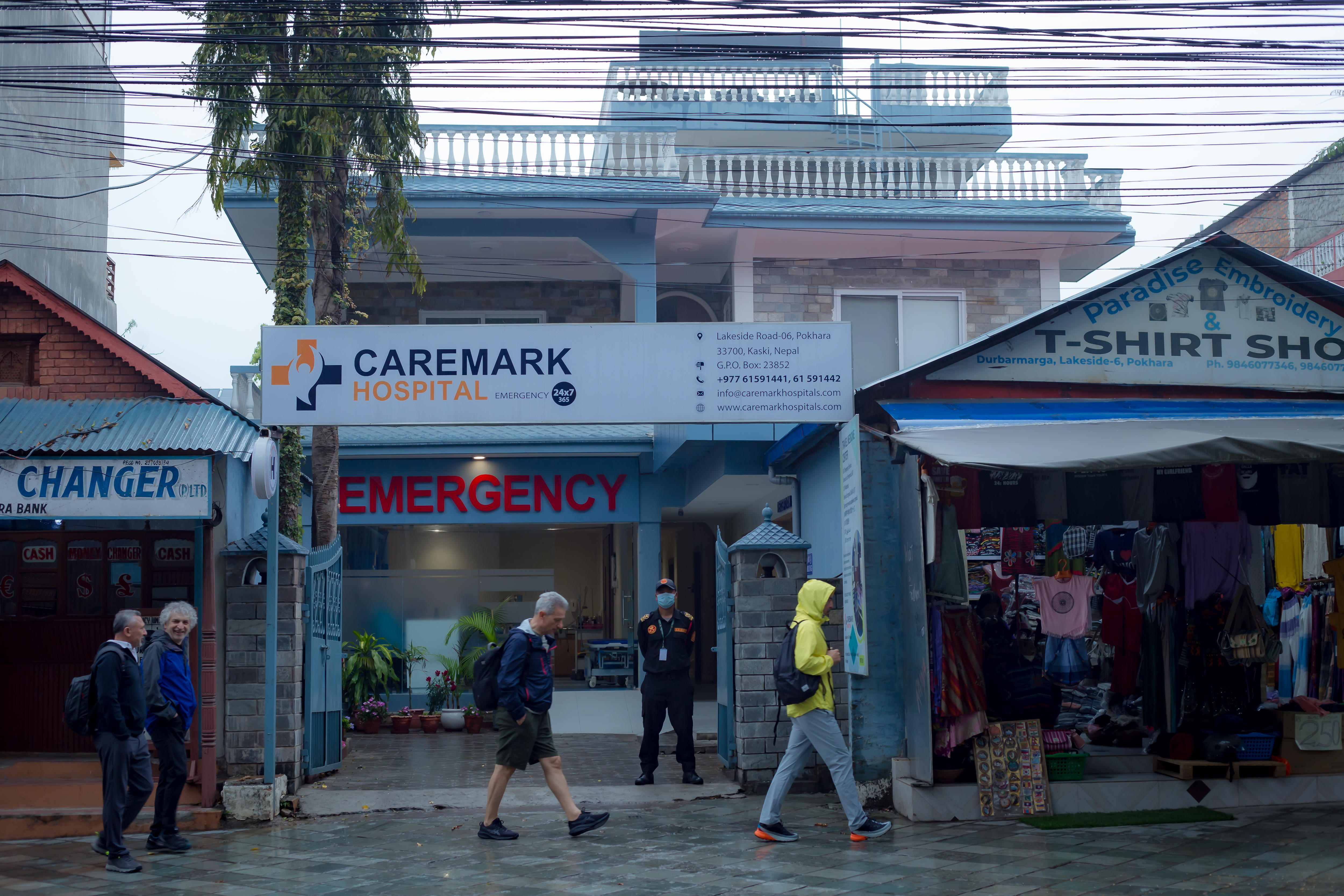
Last year, Annapurna Conservation Area reported 21 deaths from high-altitude sickness, and on Mount Everest, 12 people were confirmed dead.
He said the best thing to do if travellers begin experiencing altitude sickness symptoms is to immediately descend.
"If people descend quickly enough, within 48 hours the symptoms usually disappear, if they wait too long, it becomes much harder to reverse the effects," Dr Pokharel said.
"Recognising the early symptoms is everything — a headache isn't just a headache at high altitudes, it could be the first sign of something much more serious."
He even cautioned people who had climbed high altitudes before, as they could develop altitude sickness on their return.
Avoiding altitude sickness
Dr Pokharel said acclimatisation was key to avoiding altitude sickness and recommended travellers only ascend 600 metres at a time, with rest days to allow the body to adjust.
Those with pre-existing conditions, such as heart or lung disease, or those who consume alcohol or sedatives, are at higher risk of falling ill.
For people attempting to reach extreme altitudes, areas above 2,400 metres, or about 7,900 feet, above sea level, carrying oxygen supplements and medications like acetazolamide (Diamox) is recommended.
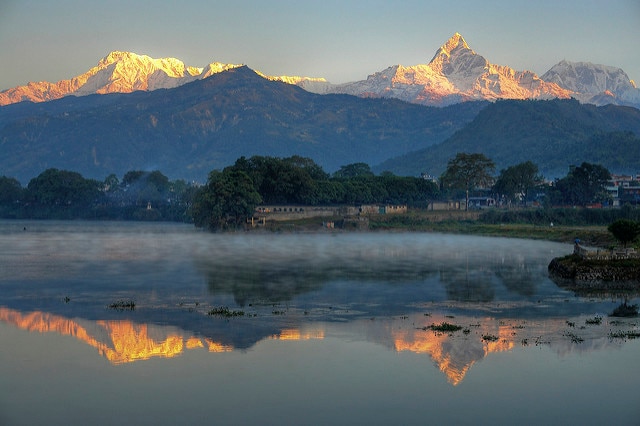
Areas above 2,400 metres above sea level are considered extreme altitude.
"[Hikers] can carry just dexamethasone … they can just use the medicine at the time of going to the higher altitude," Dr Pokharel said.
"People can take Diamox before they climb, it helps prevent altitude sickness."
Dr Pokharel said hikers needed to educate themselves, as misinformation around the use of medications was common.
"Many tourists don't take the medicine because they think that if they take the medicine, they can't go to the high altitude," he said.
"Because of this wrong information, they're not taking the medicine properly."
Dangers of HADAS
While much has been written about AMS, HAPE, and HACE, the emerging threat of high-altitude de-acclimatisation syndrome (HADAS) is far less known.
This condition affects people who usually live at high altitudes but lose their acclimatisation after spending time at lower elevations.
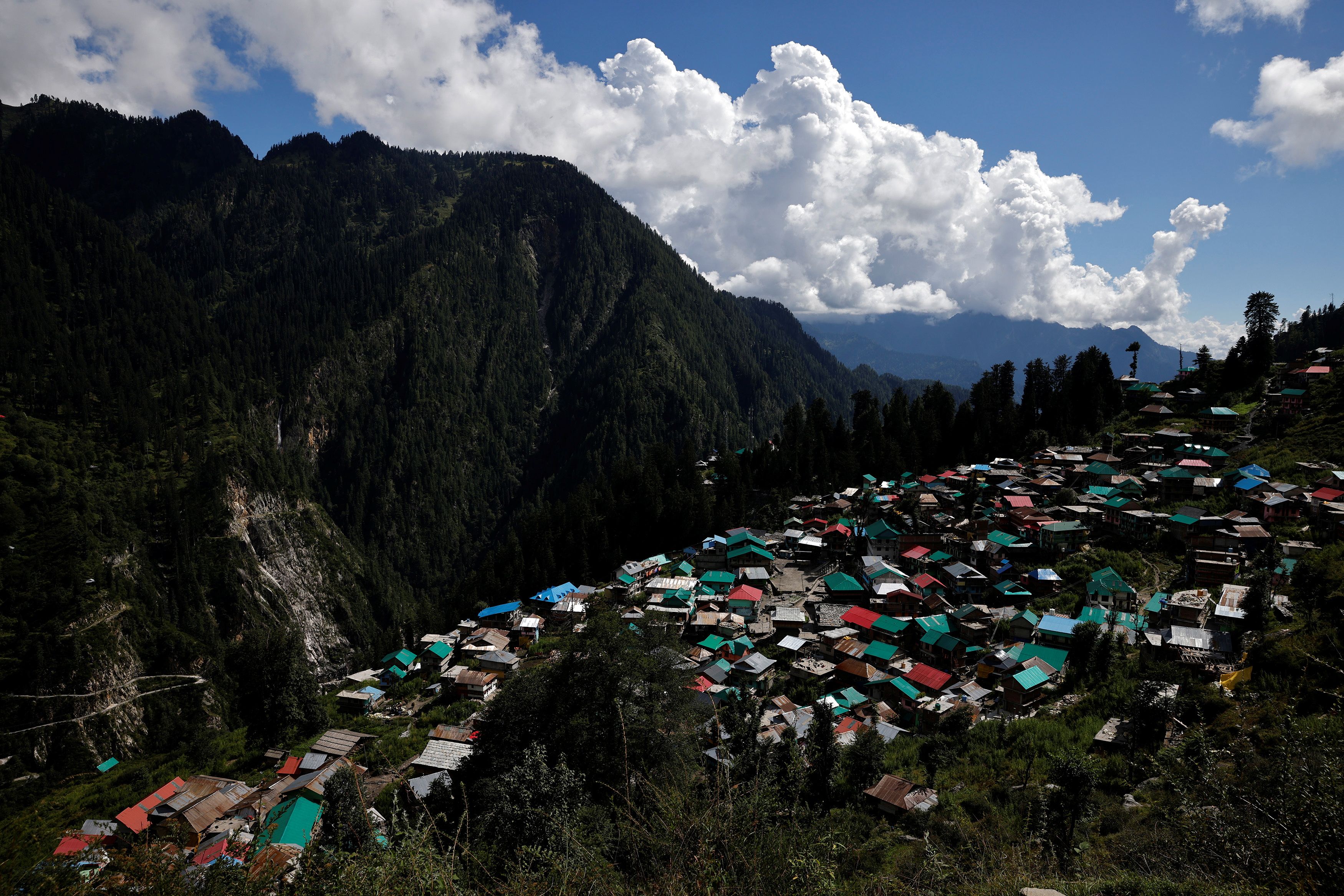
High-altitude de-acclimatisation syndrome (HADAS) can affect those who have acclimatised to high altitudes when they descend closer to sea level.
Upon returning to higher altitudes, these individuals may unexpectedly experience AMS or even HAPE and HACE symptoms, despite being accustomed to living at such elevations in the past.
"HADAS is something we're seeing more often now," Dr Pokharel said.
"It's dangerous because people who normally live at high altitudes think they're immune, but after spending time at sea level, they're just as vulnerable as anyone else."
By:https://www.abc.net.au/news/2024-10-13/the-dangers-of-altitude-sickness-and-how-to-avoid-it/104460514(责任编辑:admin)
下一篇:Landmark report uncovers human rights abuses at Rio Tinto gold mine in Bougainville, 35 years after closure
 Socceroos rescue a point
Socceroos rescue a point  Wallabies thrash Wales 52
Wallabies thrash Wales 52 Jake Paul beats Mike Tyso
Jake Paul beats Mike Tyso Live updates: England vs
Live updates: England vs  US election 2024: Donald
US election 2024: Donald  US election live: Kamala
US election live: Kamala
- ·North Korea's latest weapon agains
- ·Hezbollah says Israel 'cannot impo
- ·Inside the rise of US oligarchs and how
- ·Thailand's worst suspected serial
- ·Tabi shoes are turning heads from Holly
- ·FBI arrests Florida man planning attack
- ·Illegal immigrant gets life sentence fo
- ·Bibles, water, watches and sneakers: Do
- ·North Korea's latest weapon against
- ·Hezbollah says Israel 'cannot impose
- ·Inside the rise of US oligarchs and how i
- ·Thailand's worst suspected serial ki
- ·Tabi shoes are turning heads from Hollywo
- ·FBI arrests Florida man planning attack o
- ·Illegal immigrant gets life sentence for
- ·Bibles, water, watches and sneakers: Dona
- ·US to give Kyiv anti-personnel landmines
- ·An arrest warrant for Benjamin Netanyahu
- ·One of Vietnam's high-profile politi
- ·Shanghai Walmart Attack: A Man Randomly S
- ·South Korean police officers jailed over
- ·Cambodia publicly shames maid deported af
- ·North Korea to use all forces including n
- ·Philippines condemns China attack of Viet
- ·US adds 2 more Chinese companies to Uyghu
- ·North Korean defector steals South Korean
- ·Malaysia deports Cambodian worker for cal
- ·Rebels battle for Myanmar junta’s weste

